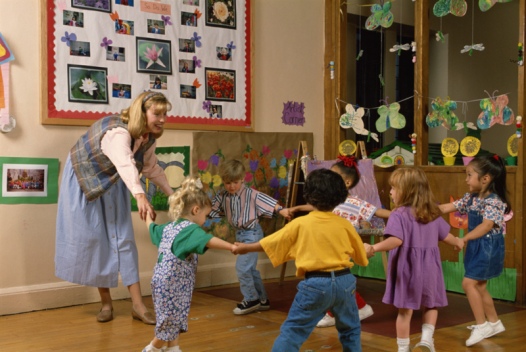UW researcher Beth Graue suggests that if you are thinking that it might be better to delay your child’s entry into kindergarten for another year, don’t.
If you have reservations about whether your son or daughter is ready for kindergarten, you’re not alone. Many parents agonize over concerns that their child might be among the youngest or smallest in the class. They often wrestle with doubts about their child’s social, emotional or academic readiness.
Her research has found that delaying entry — called “academic redshirting,” after the college sports practice of deferring eligibility for freshmen players — has few positive effects. Children who are older when they start kindergarten might experience initial academic and social advantages, but those generally disappear by the end of third grade. Meanwhile, “redshirts” have higher–than–expected placement in special education and more social, emotional and disciplinary problems.
“Readiness is a relative thing,” she says. “There are some kids who always color outside the lines, and that extra year will just make them bigger, not necessarily more ready.”
She has found that parents are less likely to delay entry for girls with fall birthdays, and these girls tend to do well. When entry is delayed, the consequences are similar, regardless of gender.
“We will always have some kids who are more or less ready, no matter what the cut–off date is,” says Graue.
Parents delay entry for a variety of reasons – most often for social, emotional, physical and biological concerns. They are usually trying to avoid something, such as their kid being the last picked for kickball.
Middle–class parents are more likely to be familiar with redshirting as a strategy from reading parenting magazines and blogs. These families are also better able to provide an enriching home environment. Working–class parents tend to want their kids in school sooner.
Here are a few tips from Graue on preparing your child to start school:
- Reading to your child every day is the best foundation you can provide.
- Make the most out of everyday tasks. For instance, having your child set the table with one fork at every place teaches such concepts of one-to-one correspondence and how to follow directions.
- Give your child lots of play time with peers to practice in cooperating with others.
- Tour the kindergarten your child will be attending; a prepared child will be more confident.
And yet, there has never been a moments doubt in our minds as parents that our younger daughter has benefited immensely by holding back her start into kindergarten. She seems to be right in the “sweet spot” of where she should be academic-wise and emotionally, seemingly well adjusted for her grade level. A tough one to call. The axiom that all children are different never seemed more apropos.
Robert Godfrey

